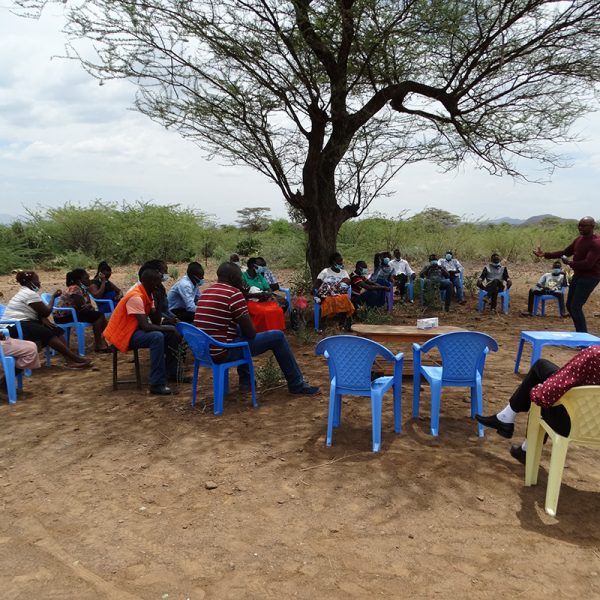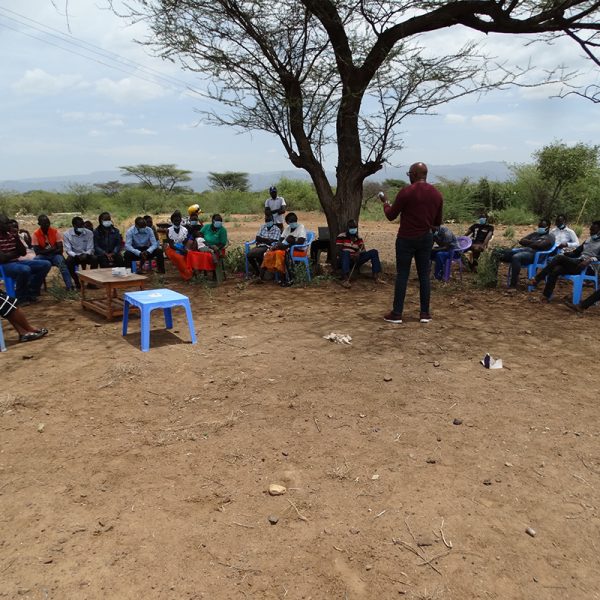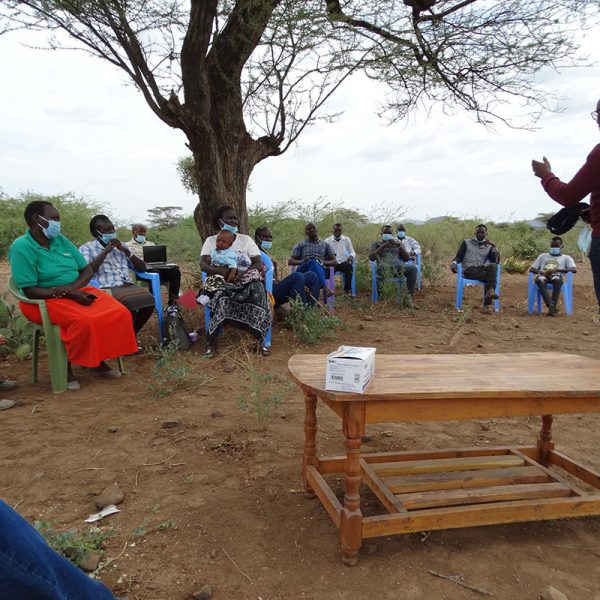Fostering Synergy
Connecting agropastoral food culture research to livestock commercialisation policy
Unlocking the synergy between agropastoral food culture research and livestock commercialisation policy lies at the heart of our mission. Through this connection, we bridge traditional knowledge with contemporary policies, enriching the livelihoods of agropastoral communities while enhancing livestock sectors.
Abstract
The context of the research.
In both East and West Africa, pastoralism is an important livelihood activity. For groups such as the Fulani (West Africa) and Ilchamus (East Africa), it is an ethnoprofessional activity, sometimes combined with agriculture in agropastoralism. For many groups, pastoralism or agropastoralism entails a unique culture, many aspects of which are connected to food production, processing, exchange and consumption activities. Anthropological research has focused on agropastoralist food cultures, for example describing how cultures and practices of food production, processing, trade and consumption have adapted as pastoralist people have engaged over centuries with local and international markets, in global contexts of technological change.
In recent decades, agropastoralist livelihoods have continued to change, in the context of continent-wide agricultural policy favouring commercialisation, modernisation and formalisation of the agricultural and livestock sectors. There is a noticeable disconnect between many policies dealing with livestock sector commercialisation and modernisation, and research on agropastoralist food culture, despite the practices of production and consumption which connect them. For example, proposed commercialisation of the dairy sector is sometimes difficult to connect to gendered associations of milk trade in the cultures of people such as the Fulani. The results is that pastoralist people, and specific groups such as women or those of given ethnicities, may not fully benefit from livestock sector development, or may even be disadvantaged. So, there is a need to draw connections between research on food cultures of pastoralism and development oriented policy on the livestock sector in Africa.
The aims and objectives of the work.
This exploratory research aims to define a new research agenda for connecting policy on livestock sector development to research on agropastoralist food cultures. The project convenes a group of relevant stakeholders – policy makers and implementers, researchers, development actors, and local community representatives – from East and West Africa. Together, they co-construct understandings of agropastoral food cultures, through participatory photography and desk research on a case study of milk and the dairy sector. The results are shared in a seminar modelled on the local meeting forum, the Baraza. A Baraza entails community members and representatives, opinion leaders, policy actors and other relevant parties convening to debate issues such as policy moves, usually in a public place such as a market. Through a Baraza style seminar, the project aims to encourage these groups to work more closely together to incorporate community perspectives, and research on them, into policy making and implementation. Key messages are then shared to the wider community and policy sector. This aims to define a clearer agenda and raise support for follow-up research.
The potential applications and benefits or the research.
The short term benefit of this work is that awareness will be raised, among all groups, of the gaps that exist between research on agropastoralist food cultures, and policy approaches to livestock sector commercialisation. Community members will enhance their abilities to advocate to policy makers, and within their communities. In the medium term, policy makers will be more cognisant of how to work with research and consider culture, and researchers will have a better understanding of how to engage with policy actors on this theme. In the longer term, there may be more relevant and culturally informed policy on livestock sector commercialisation, leading to better outcomes for pastoralists.
Planned Impact
This research will immediately benefit pastoralists involved in the partnership and the participatory activities, and local and national policy actors who attend events, including the Baraza seminar. The Baraza seminar is modelled on the local forum of the Baraza, where key stakeholders meet in a public place to debate issues of public importance, such as policy implementation. The project will also directly benefit the researchers and development professionals involved, and members of the public who see the exhibition in the Kimalel cultural center or the outputs distributed in communities.
Pastoralists involved in the activities will gain an awareness of how to advocate to policy makers on the issues that concern them, including but also extending beyond consideration of their culture and livelihoods. Specific groups within pastoralist communities, for example youth or women, will enhance their abilities to advocate for themselves within their communities.
Policy actors will gain a clearer understanding of how a focus on culture could enhance policy making and implementation. This includes making development policy and its enactment more relevant to diverse groups of local people. The concerns with diversity and equity mean that the project is relevant to SDGs 5 (gender equality) and 10 (redued inequalities).
Researchers will gain an indication of which areas of work within this emerging topic deserve further attention, and will therefore be fruitful to develop. This will be based on the themes that pastoralists and policy makers prioritise in the participatory activities.
All partners will develop connections with each other, as they work together in a partnership. This means they will be equipped to work together in the future to advance the work started. This is likely to be in a more targeted form, as indicated by the concerns of practice and policy actors. It may be in a research project, but equally a policy, development or another transdisciplinary effort.
In the medium and longer term, this and its follow up projects will benefit pastoralists elsewhere (for example in Ghana), policy makers and researchers who read the project outputs, and their contacts.
When a better understanding emerges of how pastoralist cultures can be considered in livestock sector policy, pastoralists will benefit from policy approaches which consider their culture more centrally and appropriately. This could involve, for example, marketing routes which mesh with existing modes of women organising themselves, or valorisation of prevailing practice not currently encouraged in existing modern markets, such as consumption of raw milk. This could happen if Baringo county takes a lead, providing an example of how this could be done in policy. Or, the project outputs could be taken up more widely to influence policy in other locations.
This longer term, more wide ranging impact could relate to the domain of milk and dairy commercialization, if informed directly by the work carried out in this project. If future projects focus on other sectors, such as honey, impacts relevant to those specific sectors could also emerge. The focus on productive food systems means that the project is relevant to SDGs 1 (no poverty) and 2 (zero hunger), as well as the ‘decent work’ component of SDG 8 (decent work and economic growth).
Reach Out and Connect
Contact Us Today
Reach out for inquiries, partnerships, product purchases, or want to know more about ApiTrace. We’re here to connect and collaborate on our journey toward a greener, harmonious world.
info@thesourceplus.org




